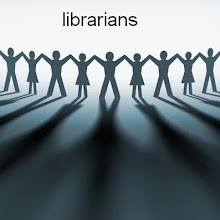The Dangers - Deprofessionalisation
Excerpt from: "What would you do? Reflecting on the Importance of Ethical Values in Librarianship" by David McMenemy


"The increasing deprofessionalisation of library work in certain sectors should be a major cause for concern for anyone who cares about the quality of professional practice. I could beat around the bush on this issue, but instead I will come out and say it; the library profession itself is potentially the biggest threat currently to the future of the profession. Let me qualify that by simply saying that across the country, librarians have been complicit in the deprofessionalisation of front-line services, especially in public libraries. The arguments posited that we do not need librarians to staff public counters, hold keys for buildings and the like may well be valid on paper, but they threaten the long-term viability of the profession. Moving professional posts into areas of policy looks good again on paper. Allowing librarians to develop initiatives and have them delivered in service points is a good use of the librarian’s time. Yet at any point across the country library users are interacting with front-line staff, blissfully ignorant of the position of that member of staff in the hierarchy. You may think big deal! Yet it is a big deal if the user assumes that the member of staff is a qualified librarian and is offering advice and service on that level. Even the best members of paraprofessional staff are unlikely to have been educated in the values that underpin the profession; therefore we cannot expect them to deliver a service knowing what libraries mean to society, even if we are semi-confident that they do. Of course good staff will, but the expectation that all will is a dangerous one. Furthermore, the increasing drive to remove the librarian from the most important part of the job, the interaction with the library user, threatens to create a service where librarians risk not knowing, ‘anything of the ways in which the need for knowledge arises, nor how their libraries fail to meet the need once arisen’ (Foskett, 1962).
Of course, this is all in addition to the growing mantra that you do not even need a librarian to lead a library service. The arguments that, ‘we need different skills from the past’ or that ‘librarians sometimes have limited skills for modern service provision’ are all the more disappointing when spoken from the mouths of librarians.
Ethical Values and Philosophy as Strength
The solution is for us to embrace once more the writings and ways of working of a bygone era. We must revisit Ranganathan, Foskett, and the scholar librarians who thought just as much about librarianship as they practised it; and we must take ownership back of our professional values.
Study and absorb CILIP’s ethical code, have it in your mind every time you provide a service to a user, regardless of the sector you are part of. Fight for the rights of the user to have their access to information championed. Consistently argue the benefits of libraries and librarians; even in the face of the ignorant and the prejudiced, and doubly so if the ignorant and prejudiced are part of our profession and the services we work in. We urgently need to reinvent and revalue the notion of the scholar librarian – the librarian as thinker, not merely the librarian as management consultant and bean counter.
We should never feel the need to apologise for our values, no matter how politically inconvenient it may be to champion them. We compromise on those values at the expense of our professional souls. Perhaps more importantly, society will lose much as a consequence of our complicity.

0 Comments:
Post a Comment
<< Home